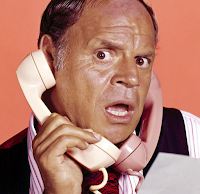With all of the news about Harvey Weinstein's alleged harassment and assaults making the news, it's important to remember that this isn't just a Hollywood or an entertainment story, but it's a story that reveals a lot about all aspects of our lives and culture. Just because it's much smaller than the cinema, it's important to acknowledge that comics are not any better just because we may want them to be.
Over at The Comics Journal, Katie Skelly writes about an experience she, unfortunately, had to live through a couple of years ago at a comic festival.
Sleep-deprived and ropey, I did what I was supposed to do before I could talk myself out of it. That morning, I told. It was my first time ever reporting harassment beyond a frenzied phone call to a friend or spilling it out in a session with my sainted therapist. And for as ugly as the entire experience had been, a light did shine back at me: I was believed. The festival did everything they could and should have done to right the situation as per their harassment policy. I would file a complaint against my harasser, in which I would be asked over the course of several different essay questions what I may have done to provoke the situation.In comics, some of comics' most infamous alleged harassers are DC Comics editor Eddie Berganza, freelance editor and writer Scott Allie (recently of Dark Horse,) CBLDF's Charles Brownstein, creator Brian Wood, and even comics legend Julius Schwartz but there are so many others. Dark Horse and DC Comics both released statements last year about the accusations against their employees even as Allie and Berganza remained employed by the publishers (DC's statement, Dark Horse's statement.) The accusations against Berganza go back to 2010 but came to light again last year after Shelly Bond was let go by DC while Berganza was the head of DC's Superman office. Heidi MacDonald has covered this many times at The Beat, including a piece in October 2015 where she wrote about the long history of abuse in the comic industry:
So it is that I find some of the harassers more pitiful than anything else. I pity their victims more, but all of them are part of a system where an old man who gropes a teenager in a car is made an Ambassador of Comics without anyone questioning if this is a good idea [emphasis are MacDonalds.] As one of my friends says, “It’s in the DNA.” DC and Marvel go back to the pulps, an industry of backroom pornographers who were little more than lowlife cheats and grifters themselves. It was no more sensitive to individual dignity than that fishing boat. Aside from a few places like individual art shops, that attitude has been passed down through the ages. It chewed up and spit out lots of men and women
But mostly women.Reading MacDonald's piece from two years shows just how little progress we've made since then. And this isn't just a comic book issue or a movie issue, it's a society issue. But we're a comic book site and we have to address this as it pertains to comics.
Google "harassment in comics" and it gives you a long list of articles and posts to scroll through. Go look at Twitter and see the abuse that female creators and critics have to live with, whether it's about having a character wear a shirt with the saying "Ask me about my feminist agenda?" or a critic calling out a comic festival for being too white in its guest list three years ago (original piece here and apology for harassment here.) Harassment takes all kinds of shapes and forms and it's important to see and call them out.
As we see almost daily on Twitter and other social media, harassment comes in all shapes, forms, delivery mechanisms and languages. Sexual predatory harassment is up there but there's also racial harassment, social harassment, and bullying (which might just be ultimately a catch-all word for what's happening here.)
Weinstein is the biggest example of a serial harasser and predator in pop culture but we need to make sure that we stay vigilant and examine all aspects of our culture and entertainment to stop these hurtful actions. Harassment and these predatory acts exist in comics, both at the professional level and at the fandom levels.








